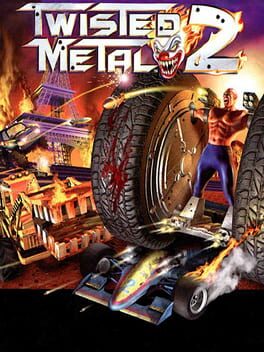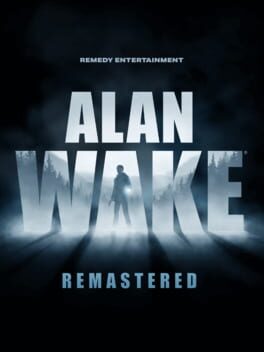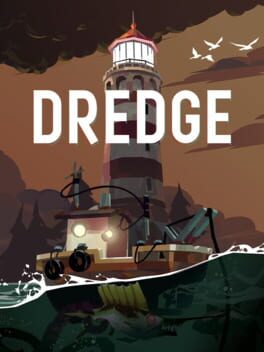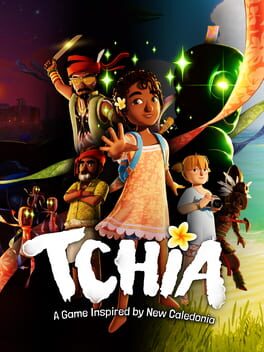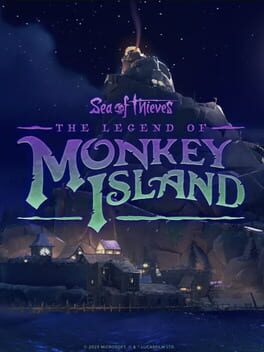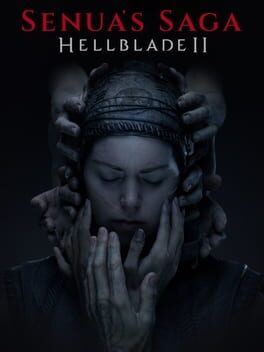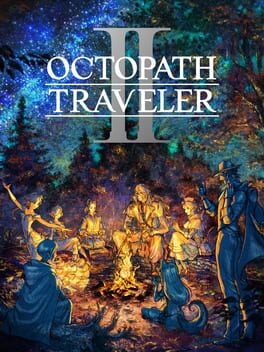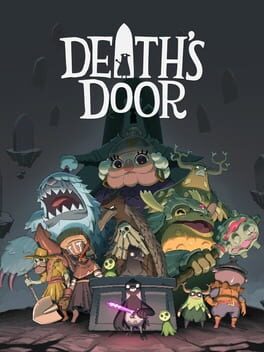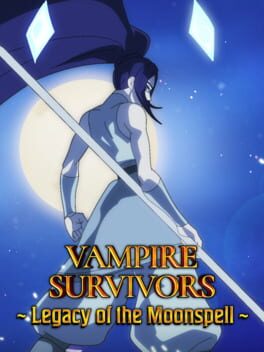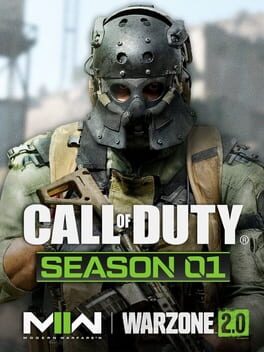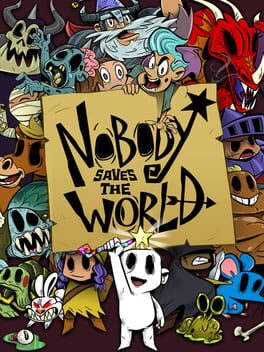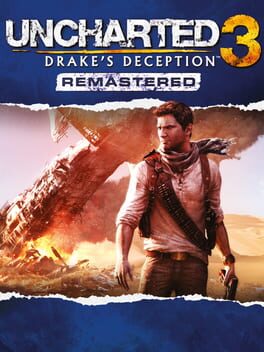ARW3
BACKER
2023
Twisted Metal 2 was an overall improvement on its predecessor. The level design is more inspired and interesting, with the overall "Special" and regular weapons available to the player being more interesting combat contributors than in the prior game. Still, even beyond the ice level, all the cars feel as though they're driving with skates on - the hypersensitivity applied here does not lend itself well to the vehicular combat. AI can be excessively oppressive on higher difficulties, seemingly doing no damage to each other throughout the match and spamming the player with near-infinite abilities as well as absurd precision with even backwards attacks. The boss fights too feel a bit unbalanced, yet can be overcome with player knowledge of special button combos (not explained in-game, but the shield is your friend!). Twisted Metal 2 is a thoughtful continuation of a wonderfully weird world, and at the time of its release unique in its promotion of pure vehicular combat.
2021
Alan Wake, as a game: ★★★★
Alan Wake's remastering efforts: ★★★
An absolutely unique gem, special for its time, and with a narrative intrigue that ages well. Alan Wake is a wonderful, contained action-adventure oozing with style. That style takes influence from a slew of television, cinema, musical, video game, and literary sources in an endearing way. That said, Alan Wake is in itself, fresh and novel. In addition to the well-crafted story, I especially enjoyed the soundtrack and the general atmosphere of the game's setting. I look forward to exploring this deeply weird world more with Control, American Nightmare, and Alan Wake's imminent sequel.
If I were to rate the remastering effort itself, my reception would be much worse. I do not think the remaster offered much in the way of updated performance or gameplay. There is a significant visual improvement, but it comes with a compromised product laden with bugs. Oddities with audio are persistent. However the most frustrating items were the progression glitches. Upon completing the game, the title deleted 2 episodes (and roughly 3 hours) of progress… disabling my ability to replay the final episode and resetting collectible statistics to their prior state. This is frankly unacceptable for a 'remaster' that has been out for as long as this one has. If such a bug is not prevalent in the backwards compatible version, I would recommend playing the game that way instead. On Series X, via FPS boost, the original can still be played at 60fps.
Alan Wake's remastering efforts: ★★★
An absolutely unique gem, special for its time, and with a narrative intrigue that ages well. Alan Wake is a wonderful, contained action-adventure oozing with style. That style takes influence from a slew of television, cinema, musical, video game, and literary sources in an endearing way. That said, Alan Wake is in itself, fresh and novel. In addition to the well-crafted story, I especially enjoyed the soundtrack and the general atmosphere of the game's setting. I look forward to exploring this deeply weird world more with Control, American Nightmare, and Alan Wake's imminent sequel.
If I were to rate the remastering effort itself, my reception would be much worse. I do not think the remaster offered much in the way of updated performance or gameplay. There is a significant visual improvement, but it comes with a compromised product laden with bugs. Oddities with audio are persistent. However the most frustrating items were the progression glitches. Upon completing the game, the title deleted 2 episodes (and roughly 3 hours) of progress… disabling my ability to replay the final episode and resetting collectible statistics to their prior state. This is frankly unacceptable for a 'remaster' that has been out for as long as this one has. If such a bug is not prevalent in the backwards compatible version, I would recommend playing the game that way instead. On Series X, via FPS boost, the original can still be played at 60fps.
2019
My high takeaway from Control is the same as it has been for other modern Remedy games: It is wonderfully weird. The Oldest House and the Federal Bureau of Control (FBC) are formidable to understand at first, offering many questions upfront but stringing along the answers over a roughly 10-15 hour main campaign and a healthy offering of side content. The world Remedy is building here is nonetheless engrossing. Navigating The Oldest House might not initially be as invigorating as the narrative threads, but I found myself quite comfortable with the task after a couple hours with the game. There is a lot here to love. Jesse Faden, the protagonist, comes across a bit blunted at first. She speaks with a flat affect, but ultimately a subtle tone of dry humor and unnerving acceptance regarding the bizarre series of events that unfold. Other characters are written with contrasting enthusiasm, such as the excellently acted Dr. Darling who appears throughout various Live Action recordings littered through the game world. Ahti, the janitor, is a particularly excellent character. He leans into the sheer mystery and unabashed quirkiness Control builds its identity on.
The Oldest House itself, as a character, surprises. I approached exploration in Control with incredulity, fully expecting the excellent visual fidelity and art direction to be marred by repetitive environments. However, this is proven untrue by The Oldest House's unwavering commitment to surprising the player with its shifting structures and secretive connections. Yes The Oldest House and the side quests it harbors are absolutely worth exploring, further unraveling the nature of what the FBC is. There are some outstanding highlights throughout the main missions too, particularly one sequence involving a "maze," to put it vaguely. Remedy also outdid themselves with the combat in this game. Telekinesis has never quite felt so good in a video game, especially while coexisting with a smooth 60fps performance, environmental destruction, various explosive effects, and some of the best visuals in modern gaming from a pure fidelity perspective. 1000 enemies later and hurling a fire extinguisher across the room is still exhilarating. Gunplay and other abilities are similarly fun, giving an overall polished combat experience. The game would be better off without its incessant commitment to spamming you with personal/weapon "mod" drops and also with time-dependent radiant quests that serve no purpose beyond giving you more excuses to dabble with the combat. Another point of criticism I could see leveraged towards the game is its convoluted storytelling nature, albeit this is something I found charming and rewarding to solve. While the narrative delivery might be obtuse to some, I would wager the scattered puzzles are more likely to be appreciated as being quite clever. I normally don't clamor for more puzzles in games, but I think some of the interactive ones on display here justified having more in the game than we got.
Overall, Remedy has constructed something masterful with Control. Its intricate connectedness to the world they have built with "Alan Wake" intrigues to a degree that might be unparalleled in terms of connected universes we see in the gaming medium. The combat is slick and satisfyingly unique. The art direction and overall wackiness of the experience elevates it, even if some of the flavor text comes by way of collectible notes or non-mandatory side content. From music videos to sentient refrigerators, Control surprises with glee and charming distinctiveness.
The Oldest House itself, as a character, surprises. I approached exploration in Control with incredulity, fully expecting the excellent visual fidelity and art direction to be marred by repetitive environments. However, this is proven untrue by The Oldest House's unwavering commitment to surprising the player with its shifting structures and secretive connections. Yes The Oldest House and the side quests it harbors are absolutely worth exploring, further unraveling the nature of what the FBC is. There are some outstanding highlights throughout the main missions too, particularly one sequence involving a "maze," to put it vaguely. Remedy also outdid themselves with the combat in this game. Telekinesis has never quite felt so good in a video game, especially while coexisting with a smooth 60fps performance, environmental destruction, various explosive effects, and some of the best visuals in modern gaming from a pure fidelity perspective. 1000 enemies later and hurling a fire extinguisher across the room is still exhilarating. Gunplay and other abilities are similarly fun, giving an overall polished combat experience. The game would be better off without its incessant commitment to spamming you with personal/weapon "mod" drops and also with time-dependent radiant quests that serve no purpose beyond giving you more excuses to dabble with the combat. Another point of criticism I could see leveraged towards the game is its convoluted storytelling nature, albeit this is something I found charming and rewarding to solve. While the narrative delivery might be obtuse to some, I would wager the scattered puzzles are more likely to be appreciated as being quite clever. I normally don't clamor for more puzzles in games, but I think some of the interactive ones on display here justified having more in the game than we got.
Overall, Remedy has constructed something masterful with Control. Its intricate connectedness to the world they have built with "Alan Wake" intrigues to a degree that might be unparalleled in terms of connected universes we see in the gaming medium. The combat is slick and satisfyingly unique. The art direction and overall wackiness of the experience elevates it, even if some of the flavor text comes by way of collectible notes or non-mandatory side content. From music videos to sentient refrigerators, Control surprises with glee and charming distinctiveness.
2023
Absurdly clever puzzle game. More clever than I. I have absolutely no clue what this story was about either... but it was an exceedingly cool experience. Unique mechanics, stylish art direction, absolute banger of a game. I know this was made by developers with "Inside" pedigree, but I still walked away immensely surprised and impressed.
2023
2023
Tchia is a beautiful tribute to the tiny nation of New Caledonia. The developers have built a gorgeous world that is bustling with personality and quirks attentive to New Caledonian culture. The music and use of native language were aspects I found to be particularly effective. Unfortunately, I did find the overall pace of Tchia dragged at times. In many ways, this charming world is undermined by bloat and haphazardly scattered map markers or upgrade economy. Similarly, the strong and heartfelt story Tchia tells is held back by redundancies in the gameplay loop and sequences that are dragged out without purpose. Traversal in Tchia is also laborious. The game has limited fast travel locations and frequently tasks players with lengthy travel, but does not provide ample means for efficient transportation.
Tchia is an impactful game that I would recommend without hesitation, but the initially charming gameplay loop overstays its welcome. This game truly wears its heart on its sleeve, and is an inspiring tribute to a pulchritudinous landscape and endearing culture.
Tchia is an impactful game that I would recommend without hesitation, but the initially charming gameplay loop overstays its welcome. This game truly wears its heart on its sleeve, and is an inspiring tribute to a pulchritudinous landscape and endearing culture.
A wonderful ode to a nostalgic franchise for many. The Legend of Monkey Island DLC is more substantial than I initially thought, bringing to life what was essentially full-length puzzle game, running me some 8 hours in length at least. It's clever, charming and is bolstered by its reverence to the source material. The familiar faces here are well voice acted and animated with the endearing charm Sea of Thieves clearly prides itself on. Although a bit long in the tooth in some parts... this root-beer glorifying, quip laden, insult-sword-fighting romp is worth your time if a "3D point and click adventure" sounds like something you'd fancy.
Receiving the Monkey Island theme as a reward shanty for doing all the DLC's commendations was a wonderful bonus :)
Receiving the Monkey Island theme as a reward shanty for doing all the DLC's commendations was a wonderful bonus :)
The notion that we are now embarking on a 'saga' for Senua feels apt. Hellblade II allows her character to further evolve and develop in ways I did not necessarily anticipate after finishing the first game. The first game served, loosely, as a staging ground for Senua to contend with her psychosis and grief. Here, as Senua journeys to Iceland, we see a protagonist more in control of what previously was poised as her debilitation. It is refreshingly ambiguous as to how much of this story is realization of myth, Senua's psychosis, or a medley of realities. Still, it is clear that as Senua contends with new existential and physical challenges, she is better equipped to orient the majority of the voices in her head to the task at hand. Hellblade II's narrative was excellent, and without leaning too much into spoilers, showed us a more empathetic Senua than we had previously known. Hellblade II does a brilliant thing in showing her fortitude and ability to adapt her own learnings and struggles to ease the pains or fears of others. It's a heroic thing, really.
Hellblade II, as is known to most people aware of the game, is a masterpiece in visual and audio presentation. It is without doubt the greatest realization of the "photorealism" visual-style made popular by AAA narrative experiences. The binaural audio is perhaps even more brilliant, delivering pondering voices, disquieting susurrations or nuanced musical build-ups as the action sequences ramped up. In regards to those action sequences, I found them frequent enough for me in Hellblade II's modest run-time. However, the combat has not evolved as much as Senua's character has since her 2017 debut title. In some ways, it feels even more simplified. It is visceral, heavy and expertly choreographed. That warrants some forgiveness for its simplicity, but it is reasonable to have expected some more effort to have been placed into the combat variety on offer. Parry, block, light attack, heavy attack and dodge remained Senua's primary fight controls for the whole game's runtime. While there was some variety in how enemies approached the combat encounters, it ultimately fell short of ever asking the player to alter their approach. The puzzles on offer here make thematic sense and are improved from the original Hellblade. They are unfortunately a bit repetitive in nature, and do not always lend themselves best to serving the pace of the game.
All and all, Hellblade II once again delivers a powerful narrative in the context of a breathtaking, disturbing, and meticulously crafted linear adventure through 9th century Iceland. It is very much a continuation of its predecessor and is an easy recommend for fans of the first game. Hellblade II is unlikely to earn the favors of those who were dissatisfied with Senua's first outing and this is not a game that will indulge players with constant combat evolution, introduction of new gameplay elements, or roleplaying customizations. Hellblade II is brilliant in what it sets out to do, and that primarily revolves around telling a linear, deeply immersive story about growth, empathy, the torments and triumphs of a well-humanized protagonist. Hellblade II ends in a logical place for the story it sought to tell, but this ending very much felt like an inflection point preceding another chapter in Senua's story... one I am quite excited to see!
Hellblade II, as is known to most people aware of the game, is a masterpiece in visual and audio presentation. It is without doubt the greatest realization of the "photorealism" visual-style made popular by AAA narrative experiences. The binaural audio is perhaps even more brilliant, delivering pondering voices, disquieting susurrations or nuanced musical build-ups as the action sequences ramped up. In regards to those action sequences, I found them frequent enough for me in Hellblade II's modest run-time. However, the combat has not evolved as much as Senua's character has since her 2017 debut title. In some ways, it feels even more simplified. It is visceral, heavy and expertly choreographed. That warrants some forgiveness for its simplicity, but it is reasonable to have expected some more effort to have been placed into the combat variety on offer. Parry, block, light attack, heavy attack and dodge remained Senua's primary fight controls for the whole game's runtime. While there was some variety in how enemies approached the combat encounters, it ultimately fell short of ever asking the player to alter their approach. The puzzles on offer here make thematic sense and are improved from the original Hellblade. They are unfortunately a bit repetitive in nature, and do not always lend themselves best to serving the pace of the game.
All and all, Hellblade II once again delivers a powerful narrative in the context of a breathtaking, disturbing, and meticulously crafted linear adventure through 9th century Iceland. It is very much a continuation of its predecessor and is an easy recommend for fans of the first game. Hellblade II is unlikely to earn the favors of those who were dissatisfied with Senua's first outing and this is not a game that will indulge players with constant combat evolution, introduction of new gameplay elements, or roleplaying customizations. Hellblade II is brilliant in what it sets out to do, and that primarily revolves around telling a linear, deeply immersive story about growth, empathy, the torments and triumphs of a well-humanized protagonist. Hellblade II ends in a logical place for the story it sought to tell, but this ending very much felt like an inflection point preceding another chapter in Senua's story... one I am quite excited to see!
2020
This review contains spoilers
The story needed many beginnings, many streams, streams that turned into a river, a flood, and then an ocean.
A perfect prologue for Alan Wake II, interlinking the events of 2010 in "Bright Falls" with the investigative efforts of the FBC. The darkness returns in a clever manner, also bringing with it one of the best boss battles in Control.
The Third Thing was a Monster
A perfect prologue for Alan Wake II, interlinking the events of 2010 in "Bright Falls" with the investigative efforts of the FBC. The darkness returns in a clever manner, also bringing with it one of the best boss battles in Control.
The Third Thing was a Monster
2023
Octopath Traveler II is a wonderful RPG with stunning art direction, a phenomenal ensemble of characters, engaging turn-based combat, fun bosses, a flawless OST, and an overall interesting world to traverse. The 8 travelers stories all come together in a surprising, but satisfying concluding arc that made for a meaningful ending to an overall phenomenal experience. Their stories were varied, but were mostly of excellent quality. Castti, Osvald, and Throné were highlight characters for me personally. "Travel banter" between the characters was appropriately endearing, and by the end it is easy to become invested in the relationships of the cast members as well as their individual personalities. The world of Solistia is unapologetically gorgeous: HD-2D has made a triumphant return in Octopath II, and I can only hope to see it further employed in the future, hopefully with equally intriguing writing accompanying it. The pixel art on display here, including a gargantuan effort to create the game's day/night cycle, is amongst the best you will witness in any video game. The only thing in Octopath Traveler II more stunning than the art direction is the music: it is simply, sublime. Without a shadow of a doubt, this game's OST is one of the best I have ever heard in any video game. It ranges from uplifting to haunting, graceful to chaotic, and I would wager is nearly perfect. For fans of traditional, ensemble-driven turn-based RPGs, Octopath Traveler II is an indubitably easy recommendation.
2021
Aside from a slew of abysmal bugs at launch, MW II has provided a solid overall multiplayer experience. The early goings were especially frustrating as a result of constant crashes in parties of ≥3 people, as well as inconsistent in-game voice chat. As things have stabilized over the past month it has grown to be a fairly enjoyable, highly customizable multiplayer experience. Gunplay is as good as ever, but I find the current rendition of CoD unplayable in specific game modes where folks seem to prefer camping to actual gameplay (kudos to Infinity Ward for the introduction of the drill charge).
Platinum #11. Fantastic outing to conclude the PS3 era of Nathan Drake's adventures. Did not quite have the impact for me that Uncharted 2 had, but it was still a great globetrotting romp. Forced melee combat and button mashing prompts are both to the game's 'fun factor' detriment. They takes away focus from much improved 3rd person shooting mechanics. For its time of original release in Nov. 2011, Uncharted 3 once again continued the series' tradition of exceeding expectations in visual presentation and environmental diversity.
